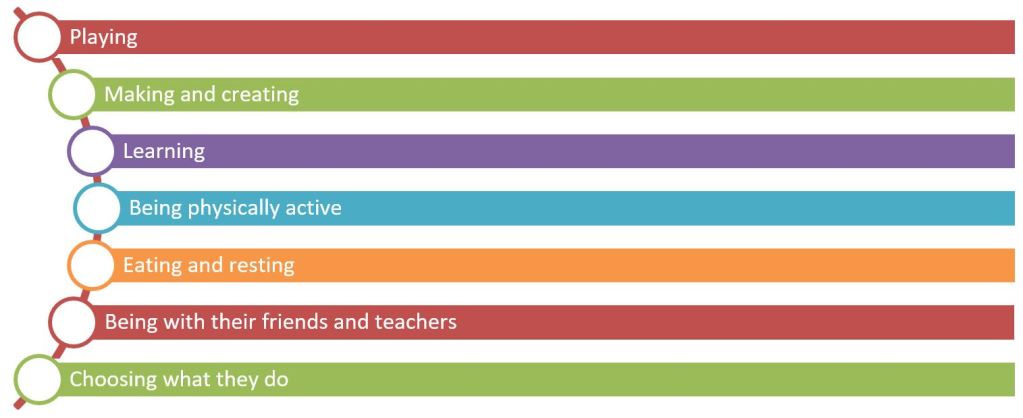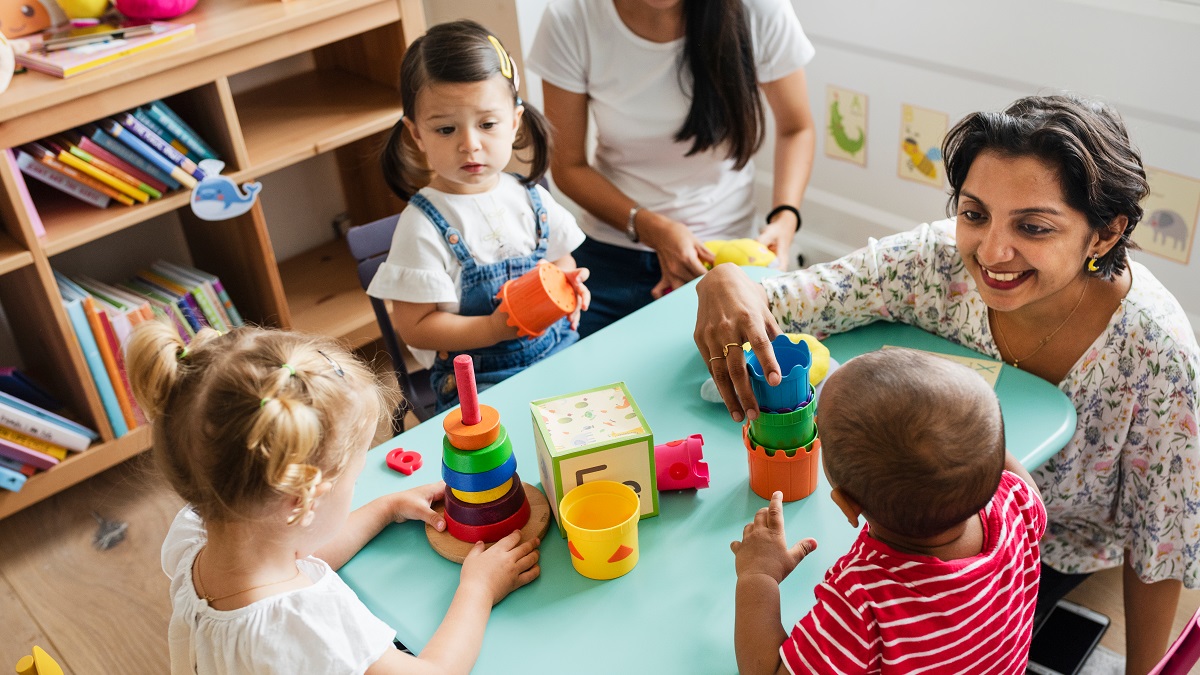By Rowena Phair
Deputy Head of Division, OECD Directorate for Education and Skills
Key points:
– The OECD’s International Early Learning and Child Well-being Study asked five-year-olds for their views on learning and school.
– We found that children are overwhelmingly positive about their early learning experience.
– Genuinely and regularly listening to children can help create early learning environments that better foster early skill development.
The old-fashioned saying that “Children should be seen and not heard” is archaic, but how often and how well do we listen to children? Do we believe we can learn about children’s lives by listening to them? Do we even recognise children as experts on their own experiences? If we don’t ask children about their experiences and preferences, how can early learning systems be sure they are doing a good job for the children they are intended to serve?
The OECD’s International Early Learning and Child Well-being Study asked over 4 500 five-year-olds what they liked most about their kindergarten or school. These children were very clear in their responses. They were overwhelmingly positive about being at kindergarten or school, liking many aspects of being there.
The children tell us there is no trade-off for them between playing and learning. They like doing both. They also like being creative and building things, as well as being with their friends and teachers, being physically active and having times for eating, rest and unstructured activities. Additionally, being able to choose what they do, at least some of the time, is important for children and is positively linked to early skill development.
What five-year-old children like most:

Providing children with ample opportunities to play supports their early development and their overall well-being. While play is certainly fun for children, it helps to build social connections with other children, to learn to negotiate with and get along well with others, and it assists early language development. Four out of 10 five-year-olds prefer playing to any other activity. They also appreciate the opportunities for play they have at kindergarten or school that they don’t get at home, such as playing with particular toys, outdoor equipment and with their friends. Being able to play at kindergarten or school creates a positive view of formal learning environments, boding well for the next stages of early schooling.
Making and creating things is also fun for children, while at the same time helping to develop their creative and problem-solving skills. Boys like doing arts and crafts and they like building things, such as with Lego, Duplo and other types of building blocks. Girls are more likely than boys to like arts and crafts, especially drawing, but are much less likely to say they enjoy building things. Playing with toy construction materials is linked to the development of early mathematical skills. Thus, it is important to ensure girls have opportunities and are actively encouraged to engage in building-type activities.
Children have a very positive view of learning. They describe it as fun, interesting and satisfying. They like learning language and other early literacy skills, including learning to write and to read books. They also like learning about numbers. For children, the processes of learning are positive and they can see their learning in action. As one child commented:
“(I like) learning new complicated stuff because it’s hard first and then you get better and better.”
Nonetheless, at five-years-of-age, girls are more likely than boys to report that they enjoy learning. Early learning educators are well advised to pay attention to children’s views of learning and of themselves as learners. Once children decide they do not like school, very few re-engage. One way of ensuring children enjoy learning is to cater to their natural, inborn curiosity. And this can be achieved without detracting from the range of other activities that children enjoy, such as being physically active and playing with their friends. Data from the OECD on children’s early learning clearly show that children who enjoy learning and who are curious to know, try and do things have stronger early skill development than other children. Making and keeping early learning fun and interesting must be a priority for all early learning settings.
Early learning systems are intended to serve the best interests of children, as well as those of their families. By listening to children, genuinely and regularly, education leaders and practitioners can better provide children with environments that foster children’s well-being and early skill development, and establishes positive expectations among children for their future learning experiences. Investing in understanding and responding to “what works for children”, according to children themselves, yields dividends far beyond well-meaning conjecture and rhetoric often associated with early years education.
Read the report
Play, Create and Learn: What Matters Most For Five-Year-Olds
Read more:
- OECD International Early Learning and Child Well-being Study
- Blog | Is curiosity a key to better early learning?
- Blog | Gender norms are clearly evident at five years of age
- Blog | Early learning gaps are stark, but can be successfully mitigated
- Full international report | OECD International Early Learning and Child Well-being Study
- Video: Andreas Schleicher presents the key findings of the study
- The OECD’s wider work on child well-being
Photo: Shutterstock/Rawpixel.com


